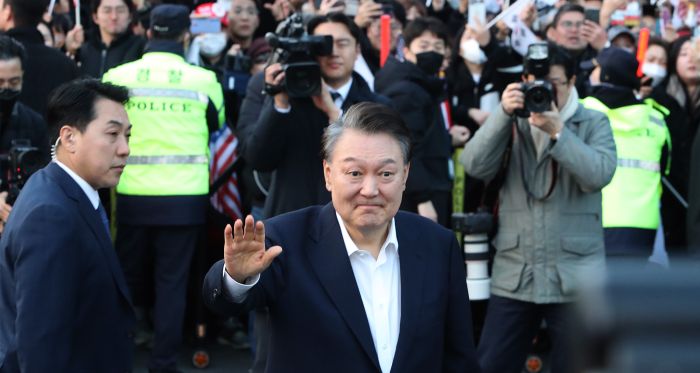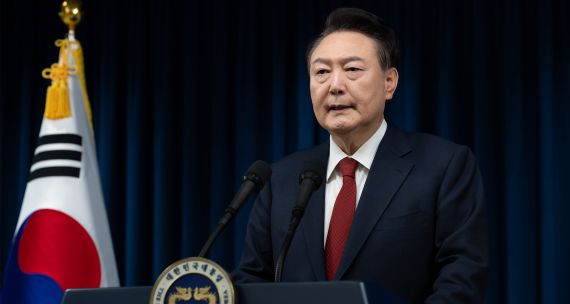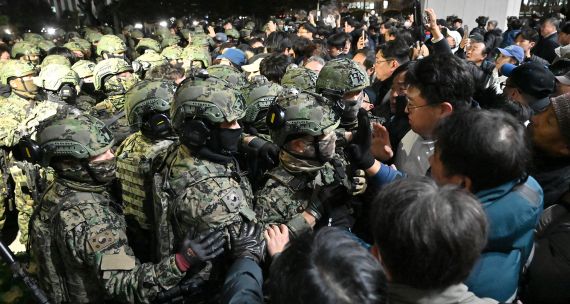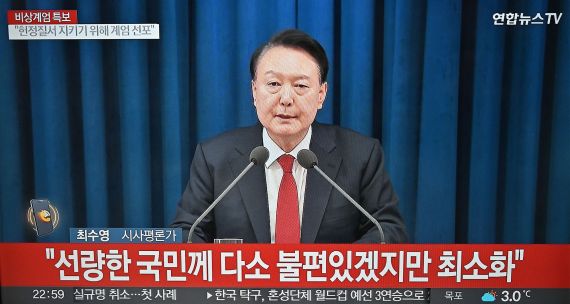Takeaway
On April 4, 2025, after a 111-day legal process, South Korea’s Constitutional Court unanimously upheld President Yoon Suk Yeol’s impeachment, immediately terminating his presidency. This historic decision follows Yoon’s controversial declaration of martial law in December 2024, which effectively ended his political career and exposed him to potential criminal prosecution. The impeachment marks a profound shift in South Korean politics, with significant implications for the country’s economic stability and international relations.
In Brief
- The Constitutional Court reviewed five key charges against Yoon filed by the National Assembly: declaration of martial law, ordering military and police deployment against the legislature, issuing martial-law decrees, conducting raids on the Central Election Commission, and directing the arrest of legal professionals. The Court ultimately deemed all five actions unconstitutional, thereby justifying Yoon’s removal. However, the Court’s decision did not include a ruling on charges of insurrection, which is being considered separately under a criminal trial.
- Hours after the impeachment verdict, Yoon met with People’s Power Party (PPP) leaders at his residence, urging them to prepare for the upcoming presidential election, which is expected to be held on June 3, 2025. Although he apologized to supporters and thanked party officials for their efforts, he did not formally acknowledge the Court’s ruling.
- Leader of the opposition Democratic Party of Korea (DPK), Lee Jae-myung, welcomed the ruling as a turning point for South Korean democracy, declaring that “a true Republic of Korea begins today.” Lee, who ran against Yoon in the 2022 presidential election, is likely to be the DPK’s candidate in the June election, given his frontrunner status.
- Thus far, the public’s response to the impeachment ruling has remained largely peaceful, with no major physical clashes reported between police and Yoon’s supporters. According to Gallup Korea’s April 1-3 poll, 52 per cent of respondents favour a change in government in the upcoming presidential election, as opposed to 37 percent favouring the PPP. The DPK received the highest approval rating among political parties: 41 per cent, compared to the PPP’s 35 per cent.
Implications
The impeachment process shows South Korea’s political culture is still inclined toward top-down decision-making and using state power for partisan gain. Many of the country’s elites have internalized the notion that political success often depends on neutralizing rather than negotiating with opponents. Furthermore, the South Korean presidency remains highly centralized, with power concentrated in the executive branch.
Public trust in the neutrality and integrity of judicial and legislative bodies has been undermined. While South Korea’s institutions largely held throughout the four months of political turmoil, controversies regarding the appointment and perceived political biases of Constitutional Court justices, as well as fairness concerns in presidential and general elections overseen by the Central Election Commission, became acute and have exacerbated an already high level of political polarization.
The political uncertainty and leadership vacuum following Yoon’s imposition of martial law has dampened foreign investment and weakened domestic consumer confidence. As of February 2025, the Bank of Korea lowered its real GDP growth forecast further, from 1.9 per cent to 1.5 per cent. During the impeachment proceedings, South Korea’s Composite Consumer Sentiment Index (CCSI) dropped to 93.4 in March 2025—well below the neutral benchmark of 100—reflecting growing public pessimism. The lowering of consumer confidence has led to reduced household spending, placing additional strain on the domestic economy.
What’s Next
- Lee’s own legal challenges could impact election dynamics: Lee Jae-myung, head of the DPK, is also facing prosecution for allegedly violating election laws. However, he is expected to still run for the presidency. If elected president, he can claim immunity under Article 84 of the Constitution. The PPP, meanwhile, currently has no leading candidate.
- Broader judicial fallout expected: Senior government and military officials—including 17 generals and 13 high-level commanders who have been accused of participating in the martial law declaration—still face prosecution on sedition charges. Additional investigations and trials involving Yoon, former First Lady Kim Gun-hee, and advisors are imminent.
- Impact on foreign policy, including Canada-Korea relations: If elected, Lee is expected to prioritize reopening dialogue with North Korea and bolster diplomatic channels with China and Russia. While Lee may try to appease right-wing and centrist voters by emphasizing South Korea’s alliance with the U.S., he will likely reverse the deepening of security ties with Japan that occurred under Yoon. As a key partner in Canada’s 2022 Indo-Pacific Strategy, South Korea has significantly upgraded its partnership with Canada on trade, defence, and sustainable development. The high-level dialogues in economic security, as well as burgeoning bilateral co-operation on climate change, cybersecurity, and critical minerals under Yoon’s administration, might either continue smoothly or recalibrate under new leadership in both countries. As part of continuing its strategic partnership with South Korea, Ottawa may invite the new president to attend the G7 summit in mid-June.
• Edited by Erin Williams, Senior Program Manager, and Vina Nadjibulla, Vice-President Research & Strategy, APF Canada






